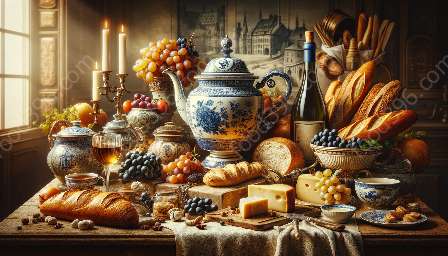France has long been celebrated for its rich culinary heritage and gastronomic traditions, which have deep roots in ancient history. The evolution of French cuisine reflects the cultural, social, and historical influences that have shaped the way people eat and enjoy food in France. By exploring the gastronomy of ancient France, we can gain a deeper understanding of the origins and development of one of the world's most revered culinary traditions.
Origins of French Gastronomy
Ancient France, known to the Romans as Gaul, was inhabited by Celtic tribes who had their own unique culinary practices. The landscape and climate of the region played a significant role in shaping the early gastronomic traditions of France, with an abundance of fertile land, rivers, and coastal areas providing a diverse array of ingredients for cooking.
One of the most important developments in the history of French gastronomy occurred during the Roman occupation of Gaul, when the Romans introduced new agricultural techniques, ingredients, and culinary practices. This fusion of Roman and Celtic influences laid the foundation for the future development of French cuisine and gastronomy.
Medieval Gastronomy
During the Middle Ages, French gastronomy underwent further evolution, as the feudal system and the influence of the Catholic Church played a significant role in shaping the culinary traditions of the time. The concept of chivalry and courtly manners also had an impact on the way food was prepared, presented, and consumed.
The medieval period saw the emergence of banquets and feasts as symbols of power and social status, with elaborate and extravagant dishes served to demonstrate the wealth and prestige of the ruling classes. The use of spices, herbs, and exotic ingredients from distant lands further enriched the culinary landscape of medieval France.
Renaissance and the Birth of Haute Cuisine
The Renaissance brought a renewed interest in the arts, culture, and intellectual pursuits, which also extended to the world of gastronomy. The development of refined cooking techniques, the cultivation of new varieties of fruits and vegetables, and the exchange of culinary knowledge between regions contributed to the emergence of a more sophisticated and elegant style of cooking.
The concept of

